External links
| National | |
|---|---|
| Other | |
| | This article about a composition for a chamber music group is a stub. You can help Wikipedia by expanding it. |
From Jewish Folk Poetry, Op. 79, is a song cycle for soprano, contralto, tenor and piano (or orchestra) by Dmitri Shostakovich. It uses texts taken from the collection Jewish folk songs, compiled by I. Dobrushin and A. Yuditsky, edited by Y. M. Sokolov (Goslitizdat, 1947). [1]
The cycle is just one of many works by Shostakovich to incorporate elements of Jewish music; he said that he was attracted by "a jolly melody on sad intonations". [2] The first eight songs of the piano version was composed in August 1948, after Shostakovich's denunciation in the Zhdanov decree of that year. Three more songs, which explore the great life Jews enjoyed under the Soviet regime, were added in October 1948 in order to allow the cycle to pass the censors. [2] Shostakovich also wrote an orchestra version for the cycle, and completed the first 8 songs by October 1948. [3]
The composer's situation made a public premiere impossible until January 15, 1955, when it was performed by Shostakovich himself on piano with Nina Dorliak (soprano), Zara Dolukhanova (mezzo-soprano) and Aleksei Maslennikov (tenor). Before the premiere the work received a number of private performances. Premiere of the orchestra version was on February 19, 1964, Gennady Rozhdestvensky conducted Gorky Philharmonic Orchestra with Galina Pisarenko (soprano), Larisa Avdeyeva (mezzo-soprano) and Aleksei Maslennikov (tenor) as the soloists. [3]
The cycle consists of 11 songs:

Dmitri Dmitriyevich Shostakovich was a Soviet-era Russian composer and pianist who became internationally known after the premiere of his First Symphony in 1926 and thereafter was regarded as a major composer.
The Symphony No. 14 in G minor, Op. 135, by Dmitri Shostakovich was completed in the spring of 1969, and was premiered later that year. It is a work for soprano, bass and a small string orchestra with percussion, consisting of eleven linked settings of poems by four authors. Most of the poems deal with the theme of death, particularly that of unjust or early death. They were set in Russian, although two other versions of the work exist with the texts all back-translated from Russian either into their original languages or into German. The symphony is dedicated to Benjamin Britten.
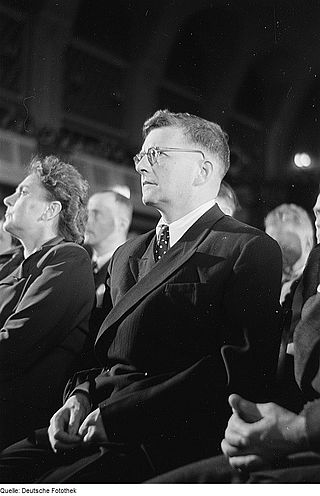
Antiformalist Rayok, also known as Learner's Manual, without opus number, is a satirical cantata for four voices, chorus, and piano by Dmitri Shostakovich. It is subtitled As an aid to students: the struggle of the realistic and formalistic directions in music. It satirizes the conferences that resulted from the Zhdanov decree of 1948 and the anti-formalism campaign in Soviet arts which followed it.
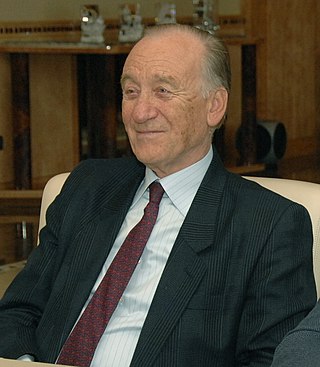
Rodion Konstantinovich Shchedrin is a Soviet and Russian composer and pianist, winner of USSR State Prize (1972), the Lenin Prize (1984), and the State Prize of the Russian Federation (1992), and is a former member of the Inter-regional Deputies Group (1989–1991). He is also a citizen of Lithuania and Spain.
Ronald James Stevenson was a Scottish composer, pianist, and writer about music.
Boris Alexandrovich Tchaikovsky, PAU, was a Soviet and Russian composer, born in Moscow, whose oeuvre includes orchestral works, chamber music and film music. He is considered as part of the second generation of Russian composers, following in the steps of Pyotr Ilyich Tchaikovsky and especially Mussorgsky.
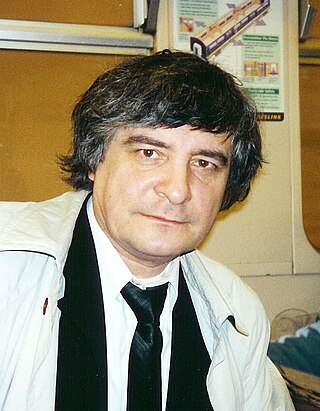
Dmitri Nikolaevich Smirnov was a Russian-British composer and academic teacher, who also published as Dmitri N. Smirnov and D. Smirnov-Sadovsky. He wrote operas, symphonies, string quartets and other chamber music, and vocal music from song to oratorio. Many of his works were inspired by the art of William Blake.
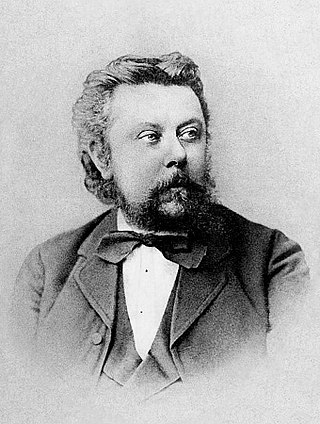
Songs and Dances of Death is a song cycle for voice and piano by Modest Petrovich Mussorgsky, written in the mid-1870s, to poems by Arseny Golenishchev-Kutuzov, a relative of the composer.
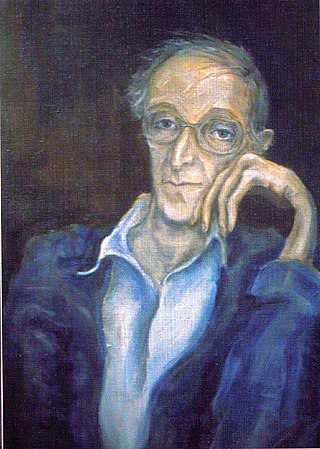
Aleksandr Lazarevich Lokshin (1920–1987) was a Soviet composer of classical music. He was born on 19 September 1920 in the town of Biysk, in the Altai Region, Western Siberia, and died in Moscow on 11 June 1987.
Boris Ivanovich Tishchenko was a Russian and Soviet composer and pianist.
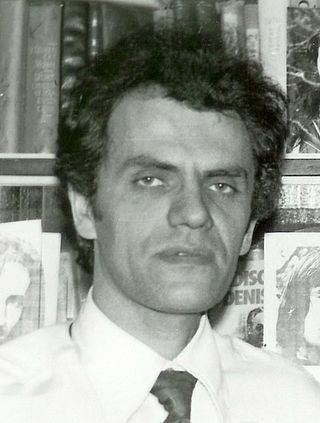
Alexander Kuzmich Vustin, also Voustin or Wustin was a Russian composer. His works, including the opera The Devil in Love, were played and recorded internationally.
Rothschild's Violin is a one-act opera by Russian composer Veniamin Fleishman (1913–1941) set to the Russian libretto by the composer after the short story "Rothschild's Fiddle" by Anton Chekhov.

Georgy Vasilyevich Sviridov was a Soviet and Russian composer. He is most widely known for his choral music, strongly influenced by the traditional chant of the Russian Orthodox Church, as well as his orchestral works which often celebrate elements of Russian culture.
The Suite for Jazz Orchestra No. 1 by Dmitri Shostakovich was composed in 1934.
Alexander Mikhailovich Raskatov is a Russian composer.
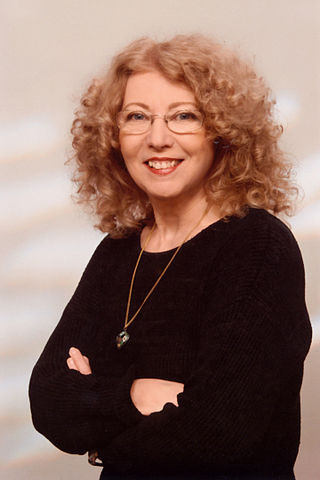
Eva Ben-Zvi is a Lithuanian-born Israeli soprano. She teaches singing at Bar-Ilan University. She has made several notable premiere performances and premiere recordings of Jewish music. She premiered Gabriel Iranyi's song cycle The Hymns of Job in 1993.
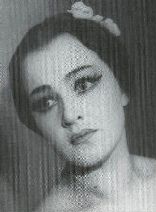
Galina Alekseyevna Pisarenko was a Soviet-born Russian soprano and teacher. She showed musical promise as a child, and her aunt enrolled her in the Gnessin Institute of Music, where she graduated with a diploma in piano. She later chose to study voice instead at the Moscow Conservatory with Nina Dorliak, who became her lifelong mentor. For a time, Pisarenko studied concurrently at the Moscow State Institute of International Relations; then economics, English, and Norwegian at Moscow State University and the Maurice Thorez Moscow State Pedagogical Institute of Foreign Languages.
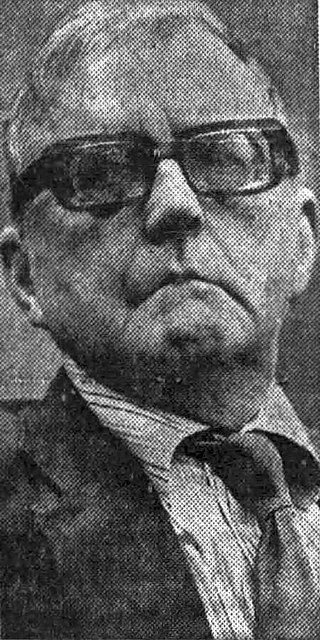
The Six Poems by Marina Tsvetayeva: Suite for Contralto and Piano, Op. 143 is a song cycle by Dmitri Shostakovich. It was composed in 1973 and originally scored for contralto and piano. In 1974, the composer made an arrangement for contralto and chamber orchestra which he designated as Op. 143a.